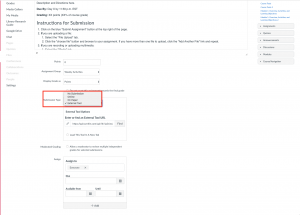

Serpico said that the three sources involved, were cited in the works cited section, “Even if they were not properly cited within text, they were clearly made visible on my reference page at the end of my paper,” Serpico wrote in an appeal.Though it’s unclear how long the passages are, the instructor said they, “take up so much of the total text in your paper… I am left with no other choice than to formally treat this as a case of plagiarism.”



The public outing of the case, which was Serpico’s decision, has put both in a negative light publicly.īut what can be learned from this? A great deal if one is willing to read between the lines of the story. Not only has Serpico’s academic career been set back, but Rutgers is now fending off questions about its plagiarism practices. The case, to put it modestly, is a mess for both sides. In the meantime, she was accepted at Florida State University and is studying there. Serpico is now suing Rutgers to have the grade changed though it is unclear if that is even capable of having an effect. Further, though she was allowed to graduate, according to Serpico, that “F” may have resulted in her being denied admission to graduate school at the University of South Carolina, her first choice, and the University of Texas at Austin, her second. However, she eventually lost and received an “F” for the course on her transcript. Serpico fought back, claiming that the software used for the detection, Turnitin, is flawed and appealed every step in the disciplinary process. While everything seemed well after turning in the assignment, two days before Christmas (after the course had ended and she was on break), the instructor of the course emailed her and informed her that plagiarism had been detected in her work. Local media in New Jersey is talking about the case of Amanda Serpico, a former Rutgers student who was accused of plagiarism in her “Argumentation” course at the college.Īs part of the class, she wrote an opinion paper arguing on the politics of gay marriage.


 0 kommentar(er)
0 kommentar(er)
